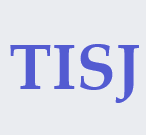Post-publication discussions
Introduction
At TISJ, we are committed to promoting a transparent and open dialogue about the research we publish. In line with the Committee on Publication Ethics (COPE) guidelines, this Post-Publication Discussions Policy outlines how we will handle discussions, comments, corrections, and disputes that arise after the publication of articles. We encourage post-publication engagement as it fosters scientific progress, improves the quality of the literature, and maintains the integrity of the academic record.
This policy ensures that our journal operates with fairness, transparency, and accountability in dealing with issues raised after an article’s publication.
Encouraging Post-Publication Engagement
Public Commentary and Discussions
We encourage readers, authors, and researchers to engage in constructive discussions regarding published articles. The journal supports academic debate, questions, and feedback that contribute to advancing knowledge and understanding in the field.
Forums for Discussion
Post-publication discussions will primarily occur through the Discussion section of the article. This section provides authors, readers, and reviewers with opportunities to exchange opinions, offer clarifications, and suggest improvements to the published work.
Transparency of Discussions
All discussions or comments related to a published article should be attributed and conducted transparently. We aim to provide a fair platform for authors to address concerns, respond to criticisms, and engage with other scholars in an open and ethical manner.
Handling Post-Publication Comments and Criticism
Constructive Comments
Post-publication comments should be respectful, constructive, and based on scientific merit. The journal expects that any critiques or feedback focus on the content and methodology of the research, rather than personal attacks on the authors. Comments should aim to contribute to the scholarly debate and offer avenues for improving the quality of the scientific record.
Addressing Criticisms
If an article receives critical feedback or challenges, the journal encourages authors to respond to the comments in a professional manner, addressing any valid concerns raised. The response will be published as an amendment or letter to the editor, clarifying or defending the original research.
Moderation of Discussions
The journal will moderate post-publication discussions to ensure that they adhere to ethical standards. We will remove any comments or discussions that are deemed abusive, defamatory, or unrelated to the scientific content of the article. Moderation will be carried out with transparency and fairness, respecting the views of all parties involved.
Corrections, Retractions, and Updates
Corrections
If post-publication discussions reveal errors or inaccuracies in a published article that do not affect the integrity of the research, a correction will be issued. Corrections will be clearly marked in the online version of the article and linked to the original publication. Authors are encouraged to notify the editorial team of any errors or discrepancies they identify after publication.
Retractions
In cases where significant ethical or methodological issues are raised after publication (e.g., data fabrication, plagiarism, or serious misconduct), the journal will follow the COPE guidelines for retractions. If an article needs to be retracted, the retraction will be prominently displayed with a clear explanation of the reasons behind the retraction.
Expressions of Concern
If concerns about the integrity of a published article arise but are not sufficient for a full retraction, the journal may issue an "Expression of Concern." This will be noted alongside the article and will explain the nature of the concerns and the steps being taken to investigate them.
Updates or Amendments
If post-publication discussions lead to additional insights, clarifications, or revisions of the original article, an update or amendment will be published. These changes will be clearly documented and date-stamped to maintain the integrity of the academic record.
Ethical Considerations in Post-Publication Discussions
Author Rights and Responsibilities
Authors have the right to defend their work and clarify misunderstandings that may arise in post-publication discussions. However, authors also have the responsibility to engage with criticisms and feedback in a respectful, professional, and scientifically rigorous manner.
Respect for Privacy
Post-publication discussions will respect the privacy of individuals involved in the research. We will ensure that no personal or confidential information is disclosed without proper consent. Any post-publication engagement should adhere to the principles of confidentiality, particularly when dealing with sensitive data or personal matters.
Avoiding Conflict of Interest
Individuals participating in post-publication discussions should disclose any potential conflicts of interest that may influence their perspective. This includes financial interests, academic rivalries, or any other biases that could compromise the objectivity of the discussion.
Role of the Editorial Team
Monitoring and Moderation
The editorial team will monitor post-publication discussions and ensure that they remain focused on the academic content of the article. We will address any inappropriate behavior or comments, ensuring that the discussions are respectful and contribute to the scientific community.
Investigating Allegations of Misconduct
If post-publication discussions raise allegations of misconduct or ethical violations, the editorial team will investigate these claims in accordance with the COPE guidelines. We will take appropriate actions, including contacting the involved parties, involving institutional authorities, and issuing retractions or corrections where necessary.
Editorial Decisions
In the case of disagreements or unresolved issues arising from post-publication discussions, the editorial team may make decisions regarding the publication of responses, clarifications, corrections, or retractions. All editorial decisions will be made with transparency and in accordance with ethical standards.
Conclusion
At TISJ, we value post-publication discussions as an important aspect of scientific discourse. By encouraging open and respectful engagement with the research we publish, we aim to promote transparency, improve scientific knowledge, and maintain the integrity of the academic record. Our Post-Publication Discussions Policy, based on the COPE guidelines, ensures that we handle all post-publication issues in an ethical, fair, and transparent manner.
For further inquiries or concerns regarding post-publication discussions, please contact the editorial office at journal@topitalianscientists.org.
